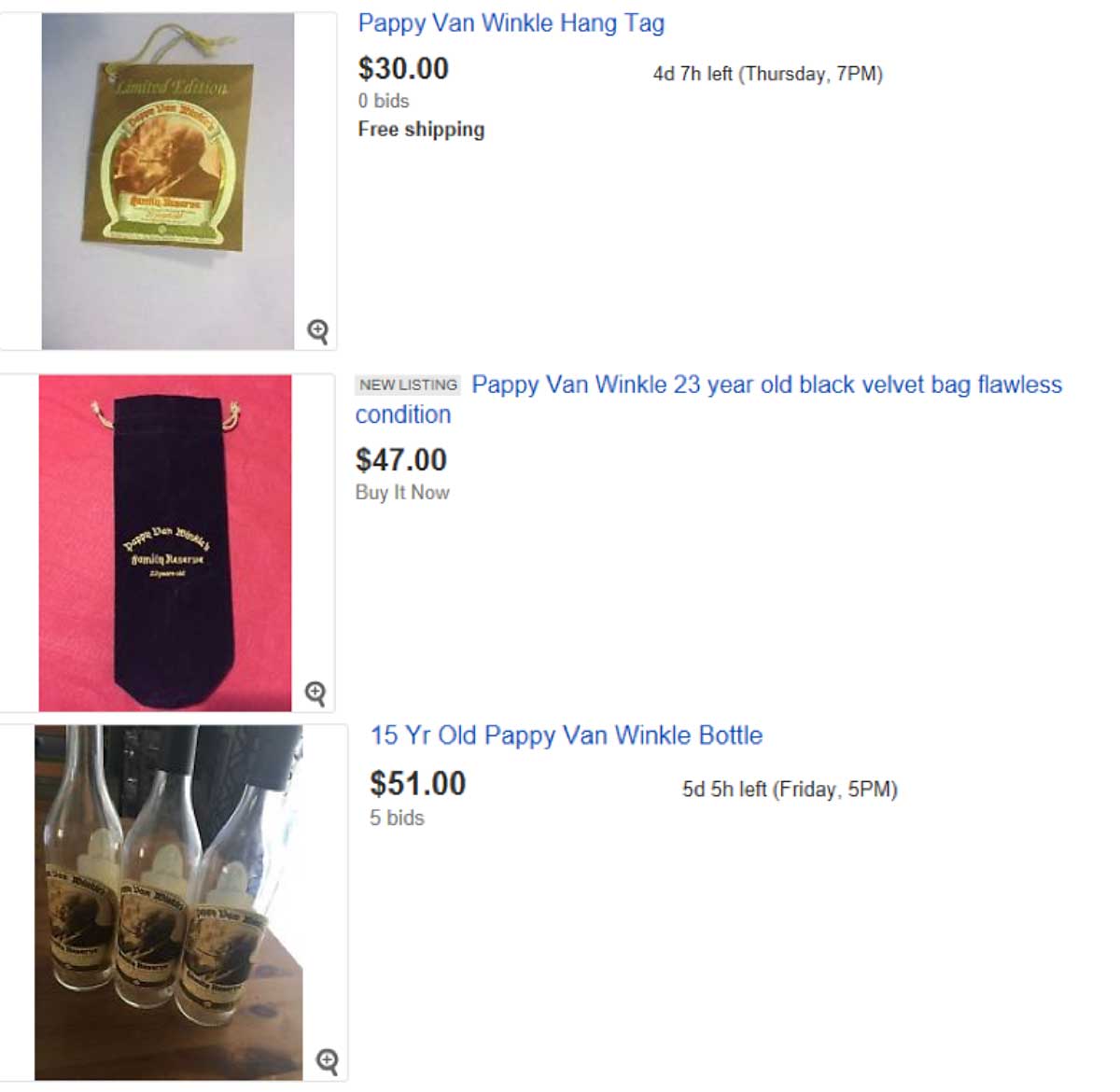Some Bottles Go To Heaven. Others Don’t.
You’ve poured yourself that last little bit of whiskey from the bottle. Now that you’ve savored that final drop, the empty bottle is standing on the table next to you. What do you do with it? Most people might look at the empty bottle and toss it in the trash.

You’ve poured yourself that last little bit of whiskey from the bottle. Now that you’ve savored that final drop, the empty bottle is standing on the table next to you. What do you do with it? Most people might look at the empty bottle and toss it in the trash. Wait a minute; you’re a responsible citizen. You don’t just throw it in the trash; you put it in the recyclable bin, right?
Unless you’ve been hiding under a rock, you know whiskey is enjoying a huge resurgence and boom, particularly with American whiskeys. Big-name labels that sat on the shelves forever just a couple years ago are now almost impossible to find. There’s an extensive gray market out there to “assist” in the redistribution of wealth – meaning, some areas of the country see a larger number of these precious bottles and others won’t receive much, if anything, at all.
Try to find Elmer T. Lee, Old Weller, or a handful of other labels, and you’ll walk away from the store disappointed. Want BTAC or Pappy? Give me a minute to stop laughing. Go online, though, and you’ll see a lot of people offering to trade or sell these bottles.
This brings me back to your empty bottle. There are bad people out there who make a big business selling counterfeit whiskey, whether that’s Scotch, Bourbon, Rye or whatever. It all starts with your empty of what was once bottled liquid sunshine. Those bad people I mentioned then go online searching for the necessary components to “rebuild” that bottle. For example, this is from a very cursory eBay search just as I’m writing this:

Now, if you look at those and think to yourself, “That’s $128, nobody is going to invest that,” prepare to be shocked. Pick up these components and a few others, pour some caramel-colored water inside, and you can then, according to a quick search at Bottlespot.com, sell one bottle of Pappy Van Winkle for $1200 (or more).
If you think you’re smart enough to recognize a counterfeit, hopefully, you’re also smart enough to know exactly what to look for. Most people don’t discover they’ve been had until they pop the cork because the counterfeiters are that good.
Keep in mind; I’m not suggesting the only reason people would buy these components is to “create” and sell counterfeit high-dollar Bourbon. But, like identity thieves, whiskey thieves are searching recycle bins and the Internet for your old bottles.
Assuming you don’t want to contribute to criminal behavior, a few options come to mind that involve reclaiming the bottles.
If you’re crafty, some people make lamps from their bottles. This is something I’ve considered doing with my empty Willett Pot Still bottles, which are pieces of artwork by themselves. You can go online and pull up YouTube videos that show how to create drinkware or vases from empty bottles. You can spice up your evening by taking some taper candles and simply sticking them in the neck. After all, what spouse wouldn’t find that romantic?
You could set the empty on the top shelf of your bar, and reminisce of those moments you shared together.
Finally, you can bring out your inner John Wayne, find yourself a fence post, stick the empty on it and use it for target practice.
This brings us back to the original question: What do you do with your empties?
